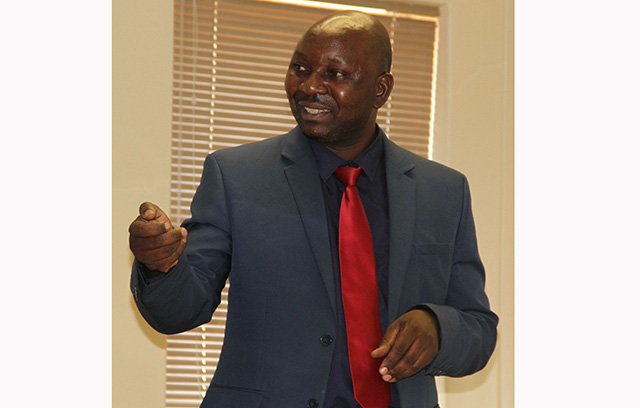• Netumbo Nekomba and Okeri NgutjinazoDuring an information session held for the media in Windhoek recently, acting director of the National Institution for Education Development (NIED) Patrick Simalumba said different factors influenced the decision to revise the curriculum.
These included the junior and senior secondary examination reports, new developments in education, international trends in education and the cabinet directive on the outcome of the 2011 National Education conference.
The outcome of the conference included the reviewing of the curriculum to the challenges and needs of the Namibian society, reducing the number of subjects in the junior secondary phase, expanding the subjects on higher level in the senior secondary phase, and reintroducing technical and vocational subjects in the school curriculum.
The revised curriculum indicates that the junior primary phase will be from Grade 1 to 3 while the senior primary phase will be from Grade 4 to 7. This way, pupils will have the opportunity to be exposed to pre-vocational subjects to lay the foundation for the technical-vocational education. It will also consist of five promotional core subjects plus a pre-vocational subject and five support subjects.
The junior secondary phase, which consists of Grade 8 and 9, will require the pupils to write junior secondary semi-external examinations at the end of Grade 9 – similar to what the Grade 10 results were. “This means the examination will be set and moderated centrally but marked in the regions,” Simalumba said. He added that the main purpose of this type of assessment is for quality assurance rather for certification purposes.
“It is argued that this type of assessment will reduce chance of pupils leaving the school system at an early age,” he said.
The junior secondary phase will consist of seven compulsory promotional subjects, elective subjects and support subjects. Simalumba said that when a pupil fails Grade 10, those under 17 are allowed to study the new Grade 9 curriculum. However, those who are older than 17 will have to enroll at part-time institutions registered with the Ministry of Education, Arts and Culture.
One of the most significant changes is phasing out the Grade 10 exit point system. In other words, the senior secondary phase will start at Grade 10 and the National Senior Secondary Certificate Ordinary Level (NSSCO) will be a two-year course, covered in Grade 10 and 11.
However, he said, the National Senior Secondary Certificate Higher Level (NSSCH) will be replaced by the Advanced Subsidiary (NSSCAS) level, a one-year course to be covered in Grade 12.
Simalumba added that the higher and ordinary levels will be similar to the Higher International General Certificate of Secondary Education (HIGSCE) and International General Certificate of Secondary Education (IGSCE).
HIGSCE is a certification offered by Cambridge University for various subjects and the IGSCE is an English language (similar to General Certificate of Secondary Education) (GCSE) and is recognised in the United Kingdom as being equivalent to the GCSE.
The Cambridge IGSCE and NSSCO will develop pupil’s knowledge, understanding and skills in subject content, working and communicating in English, and applying what they learn to new as well as unfamiliar situations.
“Both IGSCE and NSSCO prepare for progression to employment or to further study,” he said.
The Namibian reported this month that education minister Katrina Hanse-Himarwa said parents should not leave the financial responsibility of schools up to the administration, but should contribute, despite the introduction of free education.
However, some school principals who The Namibian spoke to said extramural activities and school tours have become a luxury, adding that free education has presented more problems than solutions to them.
The school principal of Emma Hoogenhout Primary School, Isabella Beukes, said the free education policy would cause more problems in future.
“Schools will be forced to cut finances even more, which could ultimately lead to the closure of some schools,” Beukes said. Some principals told The Namibian in a separate report last week that apart from the shortages of textbooks, teachers were not prepared for the new curriculum despite the announcement having been made in 2014.
Stay informed with The Namibian – your source for credible journalism. Get in-depth reporting and opinions for
only N$85 a month. Invest in journalism, invest in democracy –
Subscribe Now!







